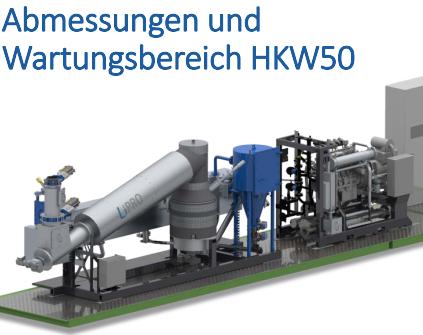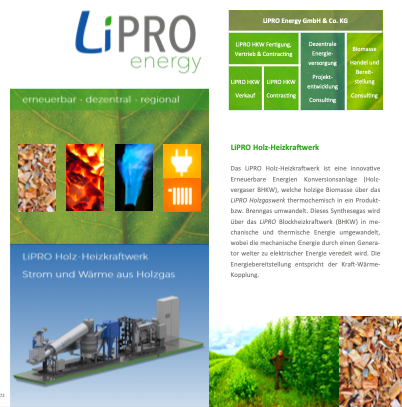LiPRO Wood-Gasification-CHP-Plant
The LiPRO wood-fired cogeneration plant (CHP) is a biomass CHP plant. An innovative conversion plant, which is powered by renewable energy. The wood cogeneration plant aims to convert woody biomass into electrical and thermal energy. The biomass used is transformed into fuel gas within a multi-stage thermochemical process of the LiPRO wood gas plant. The resulting synthesis gas is then converted into mechanical and thermal energy by the LiPRO combined heat and power plant (CHP), with the mechanical energy being further refined into electrical energy by a generator. The energy supply thereby corresponds to combined heat and power.
Power and heat from wood
- 53kW electrical power (net 50kW)
- 97kW thermal output
- 0.7-0.8 kg (absolutely dry) per kWh(electric) Fuel consumption*
- Wood gas CHP with industrial suction engine
*depending on the wood quality
- 53kW+ electrical power (net 50kW+)
- 97kW thermal output
- 0.7-0.8 kg (absolutely dry) per kWh(electric) Fuel consumption*
- Wood gas CHP with industrial turbo engine
- high requirements for low emissions possible with a 3-way catalyst
*depending on the wood quality
- high consistent wood gas quality when using inferior wood chips, thanks to the multi-stage gasification process, no wet scrubbing is required
- high availability over 8,000h per year
- maintenance-friendly design
- fully automatic operation
- use of inferior wood chips from landscape maintenance and crown residue wood
- use of A1 wood, industry packaging wood
- ash post-combustion of the filter ash in the reactor only contains 0.5-1.5% ash
- Automatic discharge of ash grate and also of contaminants such as stones or metals in permitted chip size
LiPRO wood gas plant has a unique multi-stage gasification process
The LiPRO cogeneration plant is the first marketable wood gasification plant with a multi-stage gasification process. In this process, the individual stages are separated from each other in terms of process technology to be able to influence the process-specific conditions in a targeted manner. This technical separation allows the variety of fuels to be significantly expanded. This ensures stable process control, which has many advantages. In particular, a tar-free gas can be obtained, from which electrical and thermal energy is made available via the CHP unit.
Advantages of innovation
After pyrolysis has been completed, the complex hydrocarbon molecules within the pyrolysis gas are cracked through oxidation at around 1050 °C, while the pyrolysis coal is passed directly to the reduction stage. The separate oxidation process ensures that no tar compounds enter the product gas. This enables it to be used in an internal combustion engine without the need for complex gas purification.
An additional grate design enables the discharge of foreign matter such as stones or nails.
A further separate reduction enables constant temperature control at a low level, which significantly reduces the formation of glass ash and thus ensures high operational reliability.
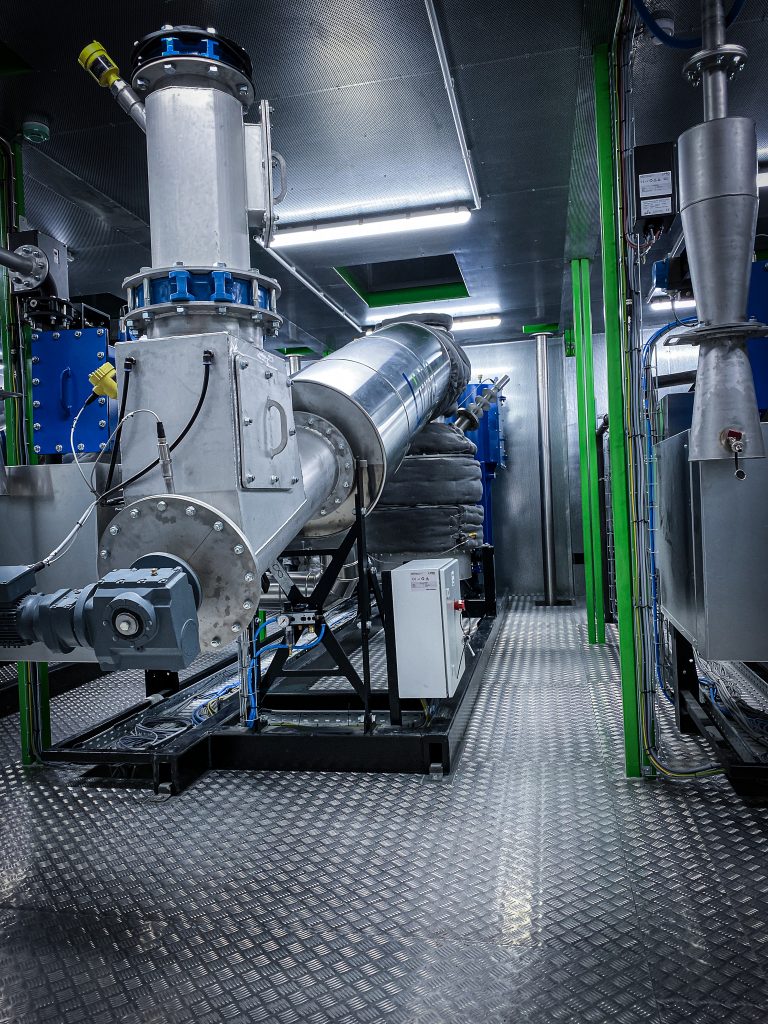
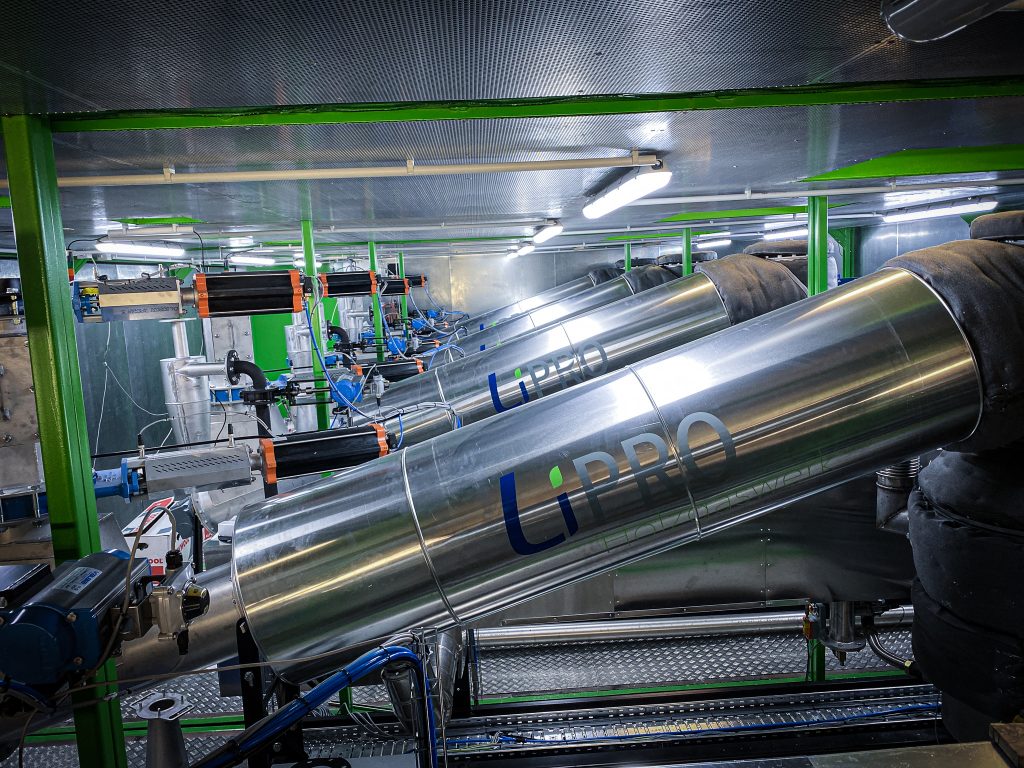
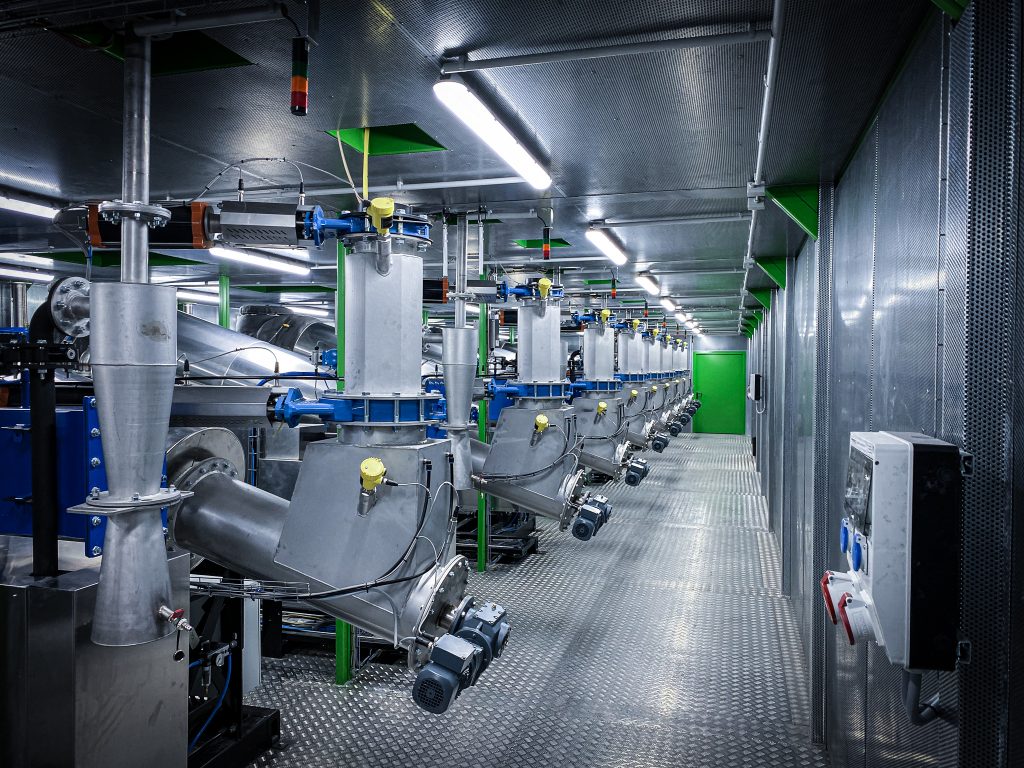
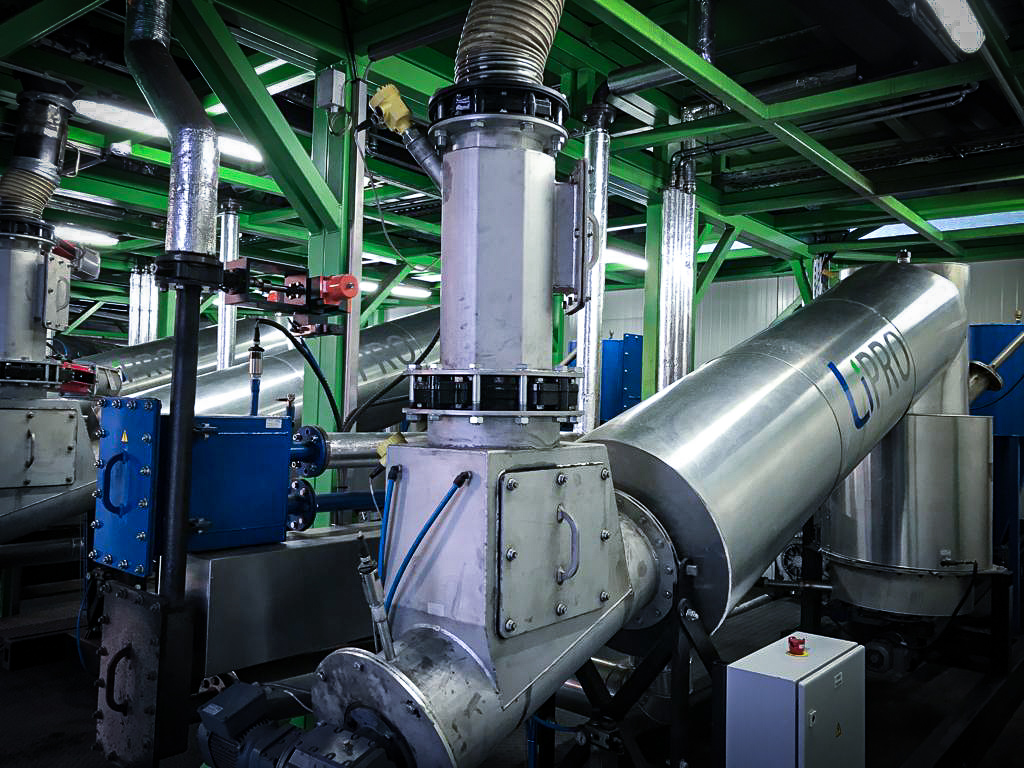
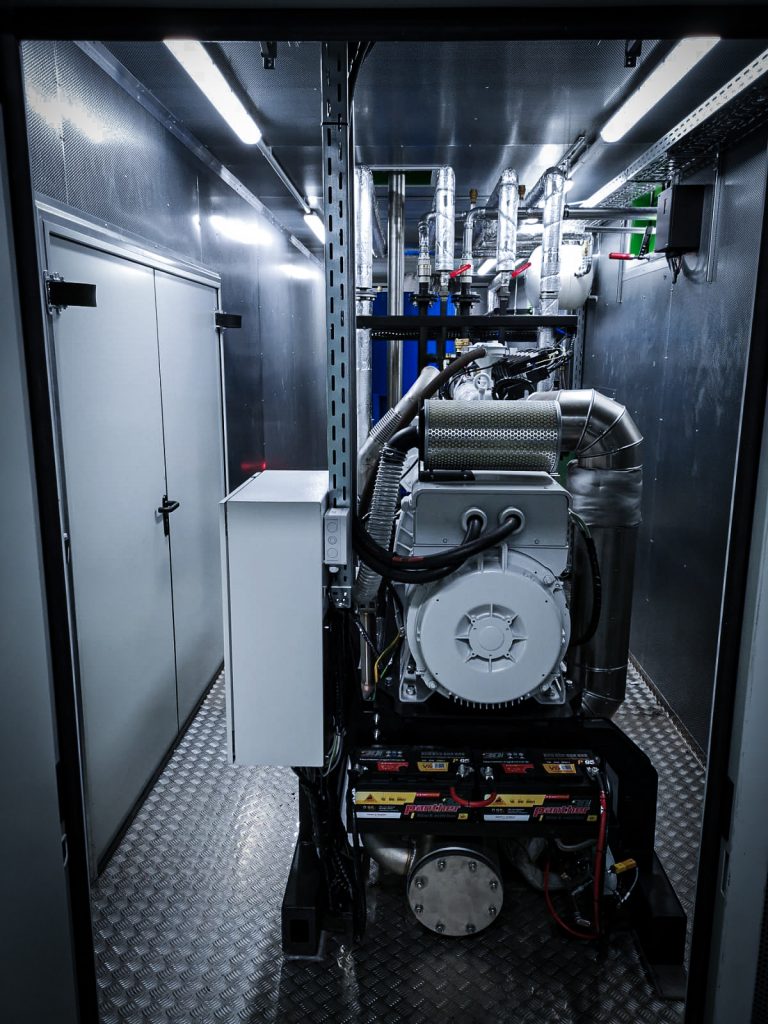
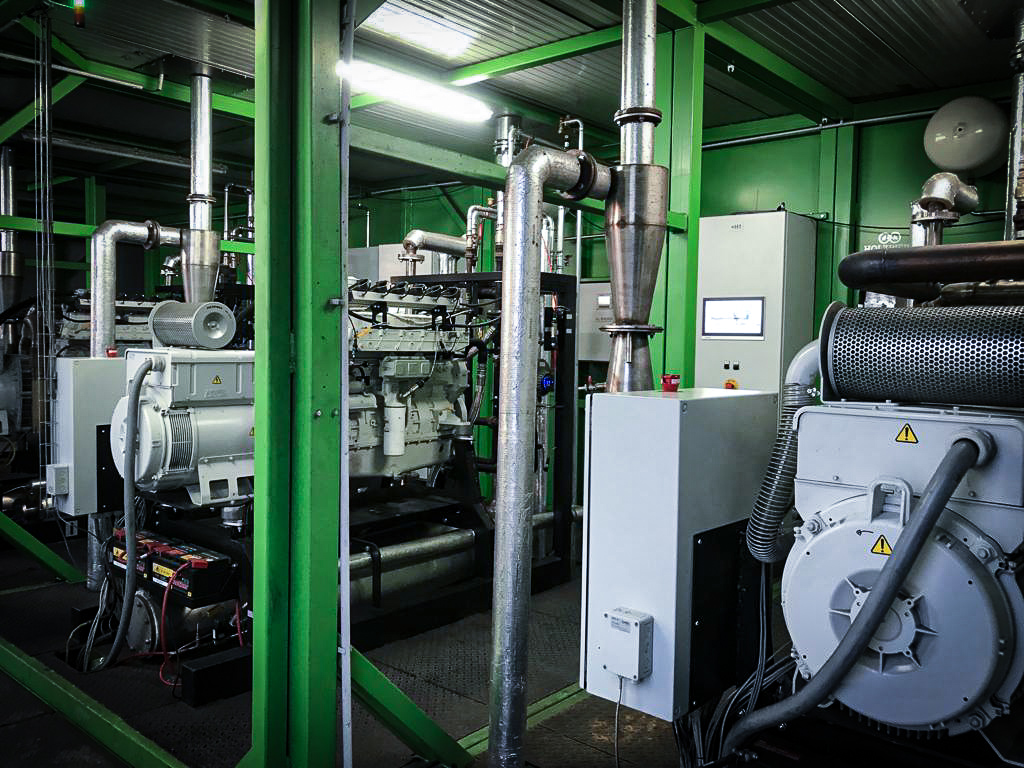
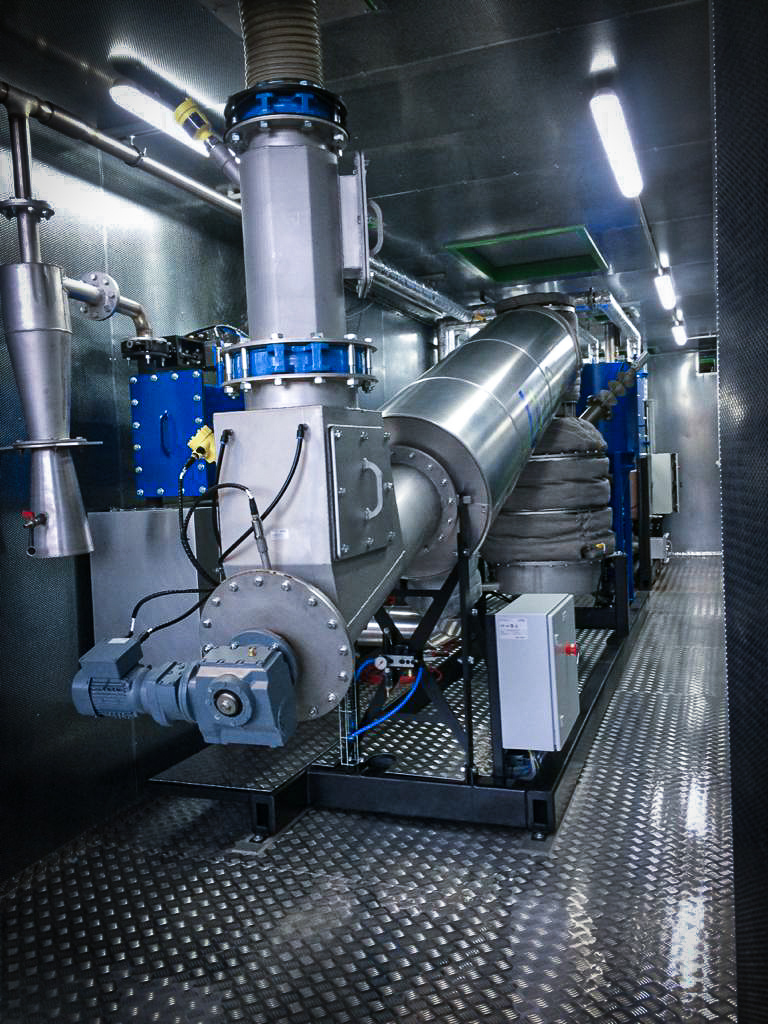
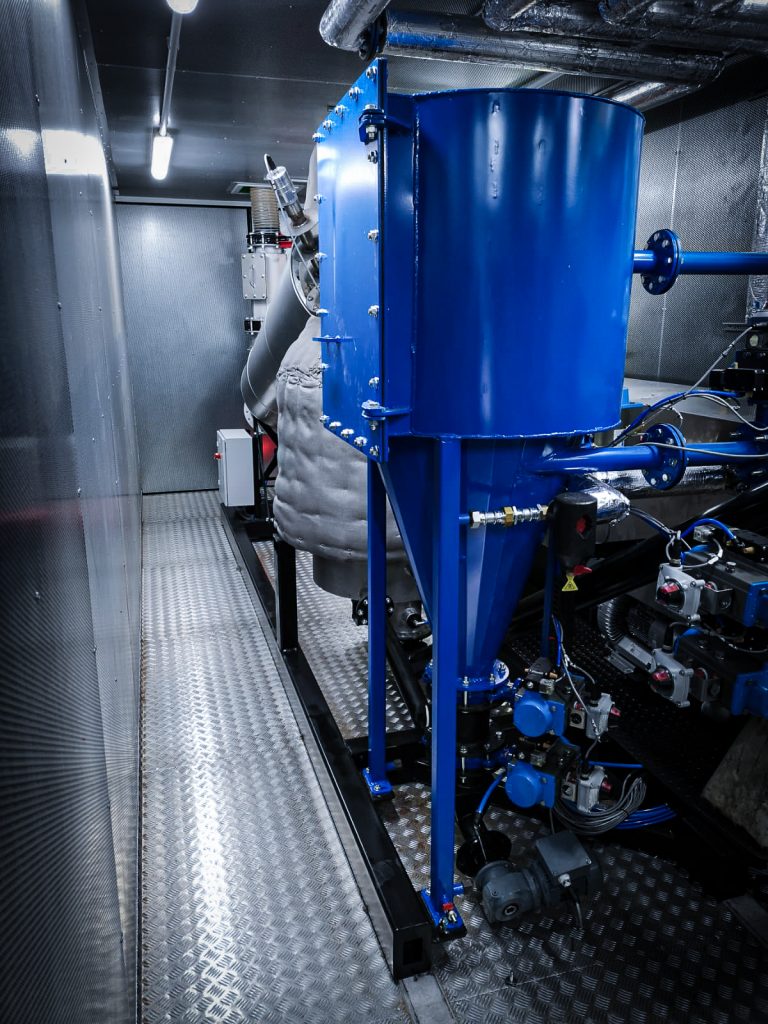
Areas of application
• Agriculture and forestry enterprises
• Industrial Areas
• Hotel and restaurant enterprises
• District heating grid operators to supply several buildings
• Residential areas
• Public buildings
• Sports and swimming facilities
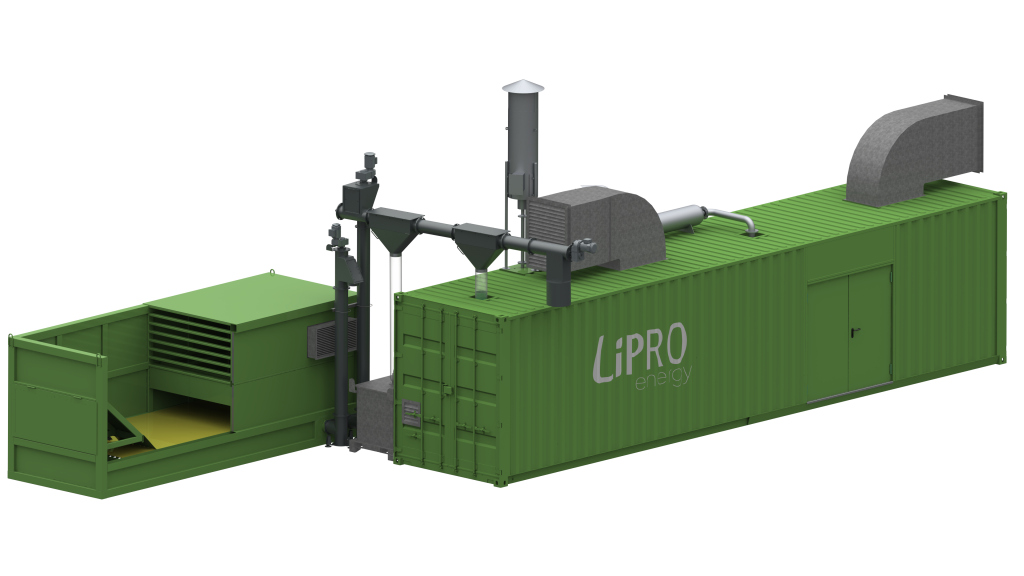
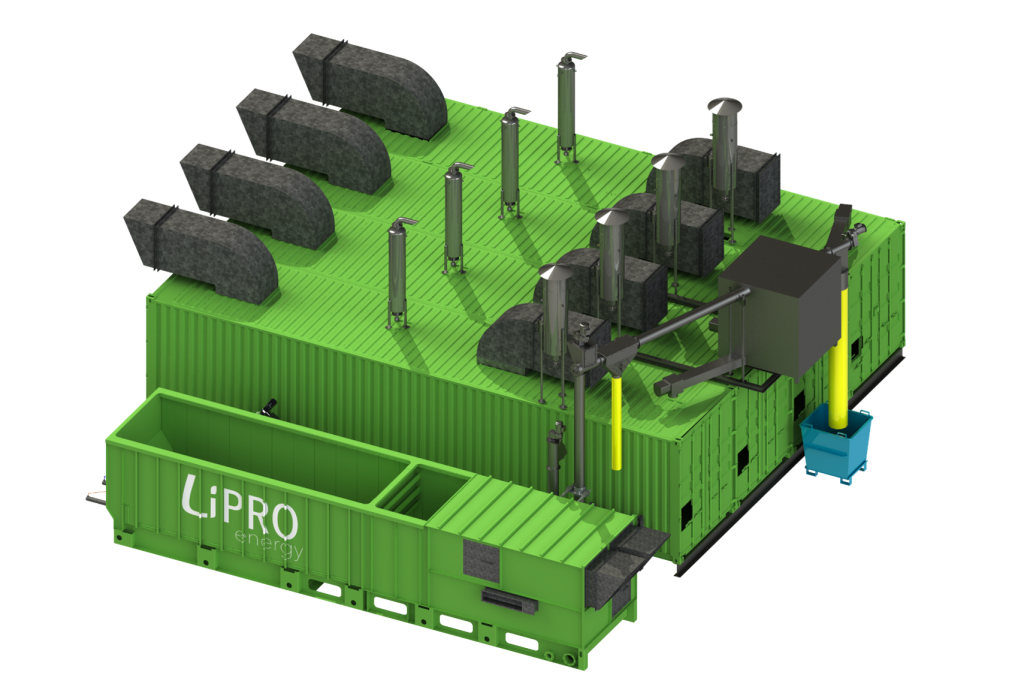
By scaling several plants, the wood-fired power plant can be freely adapted in its output size according to the location and operated autonomously without personnel. For the LiPRO wood-fired power plant, only 14-day maintenance of the plant and a weekly charging of the fuel bunker is necessary.

The LiPRO CHP has a unique multi-stage wood gasification process with agitated pyrolysis. This is a more agile, robust, and therefore reliable technology. The main advantage is the spatially separated thermochemical process control. Each process parameter is automatically influenced individually, thus ensuring consistently high product gas quality with varying fuel quality. For the first time, this innovation significantly expands the plant’s range of applications. The reason for this is the operational reliability of the plant and the highly available unused fuels that can be used in a variety of ways, e.g. tree cuttings from landscape conservation, and waste wood. The processing capability for other lignocellulosic residual materials from industry (residual materials from the biogas and food industries) is currently under development See also the Research section.
Technical Data
Technical data of the LiPRO HKW50
Description | HKW 50 |
Nominal Electrical Output | 53 kW (50 kW) |
Nominal Thermal Output | 97 kW |
Engine hours / Year | 8.000 h |
Electrical Output / Year (at 8000h /a) | 424.000 kWh |
Thermal Output / Year (at 8000h /a) | 776.000 kWh |
Fuel Quality | P 45 |
Water Content | < W10 |
Fuel Consumtion/h | 37,5 kg |
Fuel Consumtion/a | 300 t |
Electrical Output Voltage | 400V |
Frequency | 50 Hz |
Thermal Outlet Temperature | max. 85˚C |
Thermal Inlet Temperature | max. 65˚C |
Dimension Gasification Unit | 6.581 x 1.597 x 2.506mm |
Dimension CHP Unit | 2.578 x 1.337 x 1.984 mm |
Dimension Control Cabinet | 1.200 x 550 x 2.200 mm |
Wood gas composition of the LiPRO CHP
Components | Ranges of typical gas composition *1) | LiPRO CHP measured gas composition *2) |
H2 in Vol.-% | 6,0-19 | 22,6 |
CO in Vol.-% | 9,0-21 | 20,7 |
3,0-7,0 | 2,7 | |
CO2 in Vol.- % | 11-19 | 10,4 |
N2 in Vol.-% | 42-60 | 43 |
Heating value in MJ/Nm³ | 3,0-6,5 | 5,7 |
*1) Ranges of typical compositions of the dry product gas from atmospheric gasification of woody biomass with air (M. Kaltschmitt, H. Hartmann (eds.), Energie aus Biomasse, Springer-Verlag Berlin Heidelberg 2001). *2) Method DIN 51872-5 |



